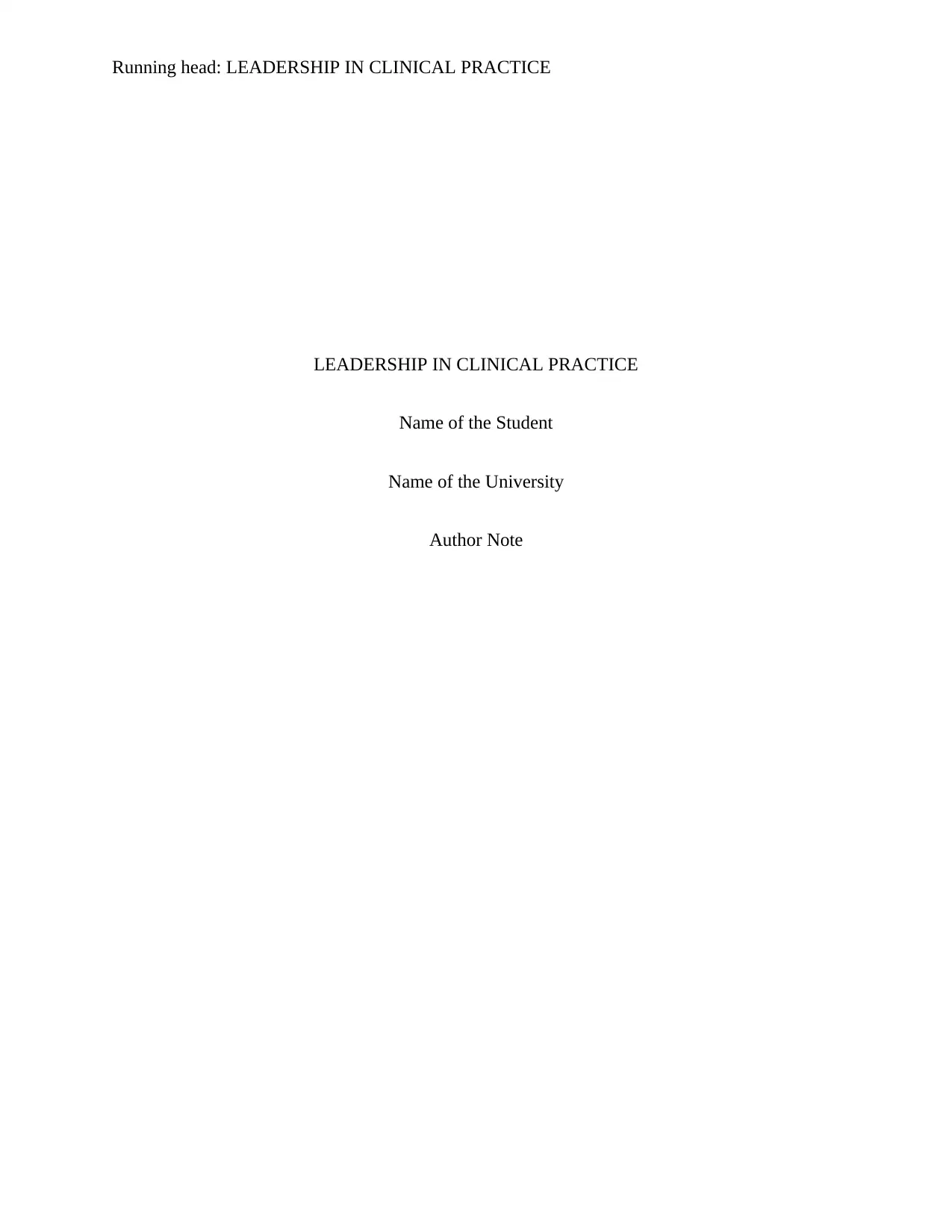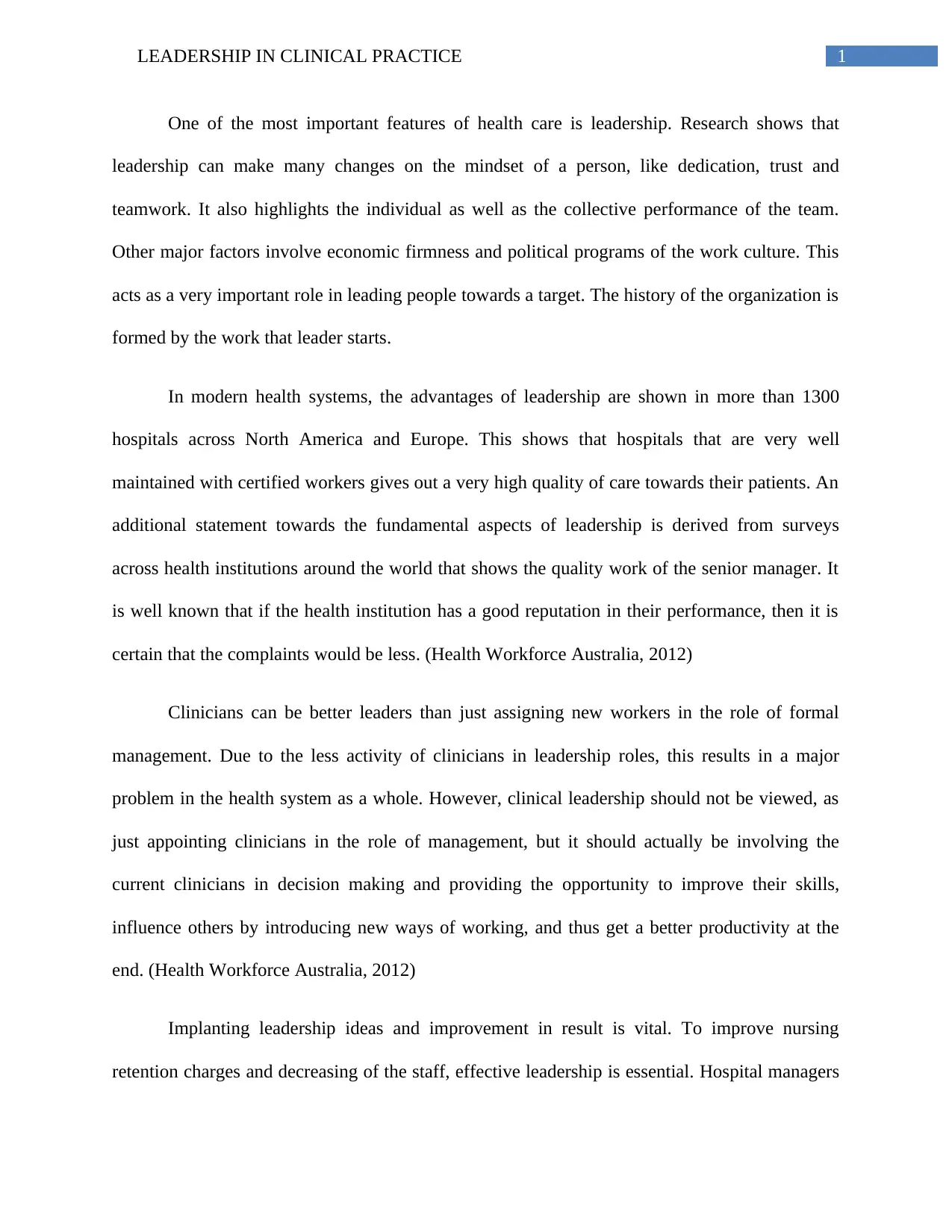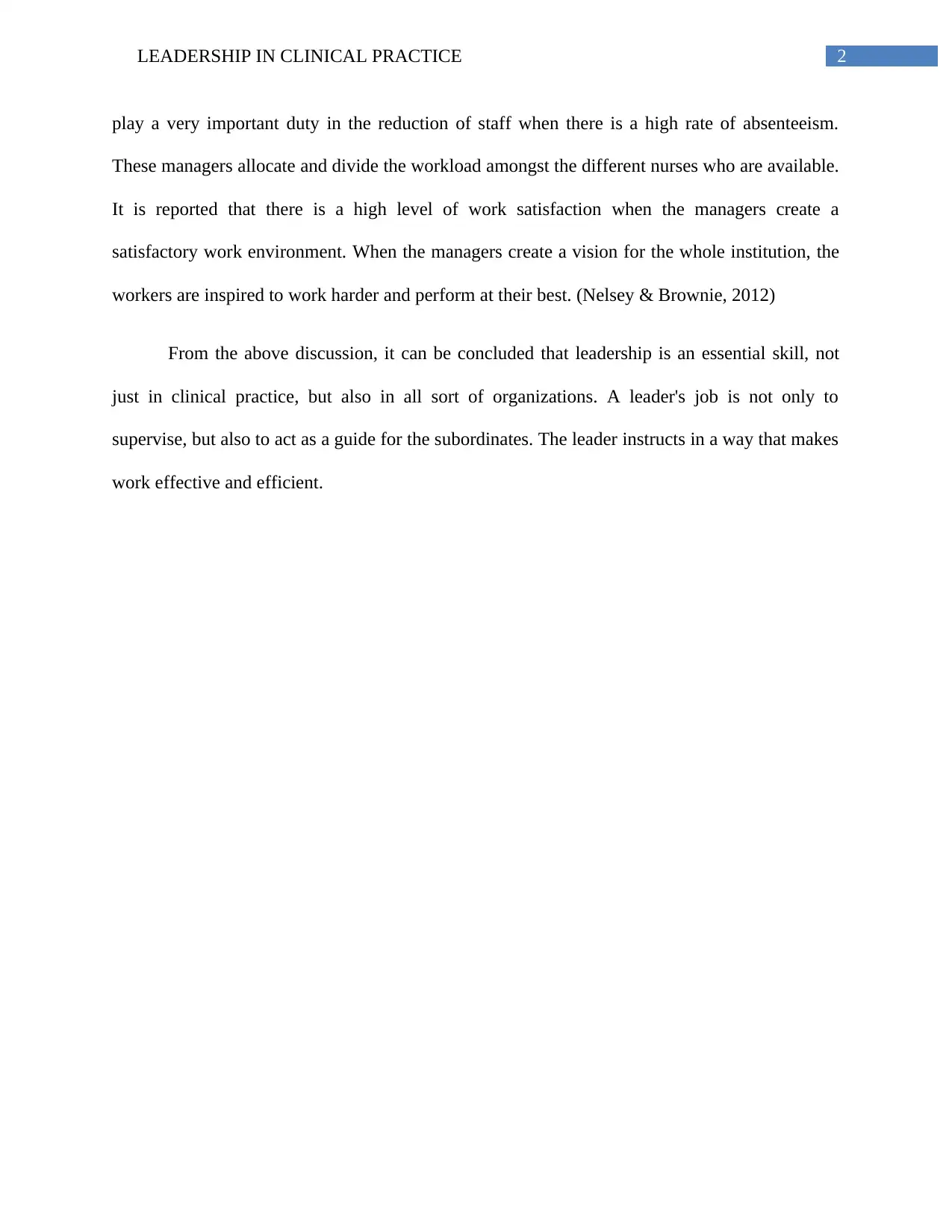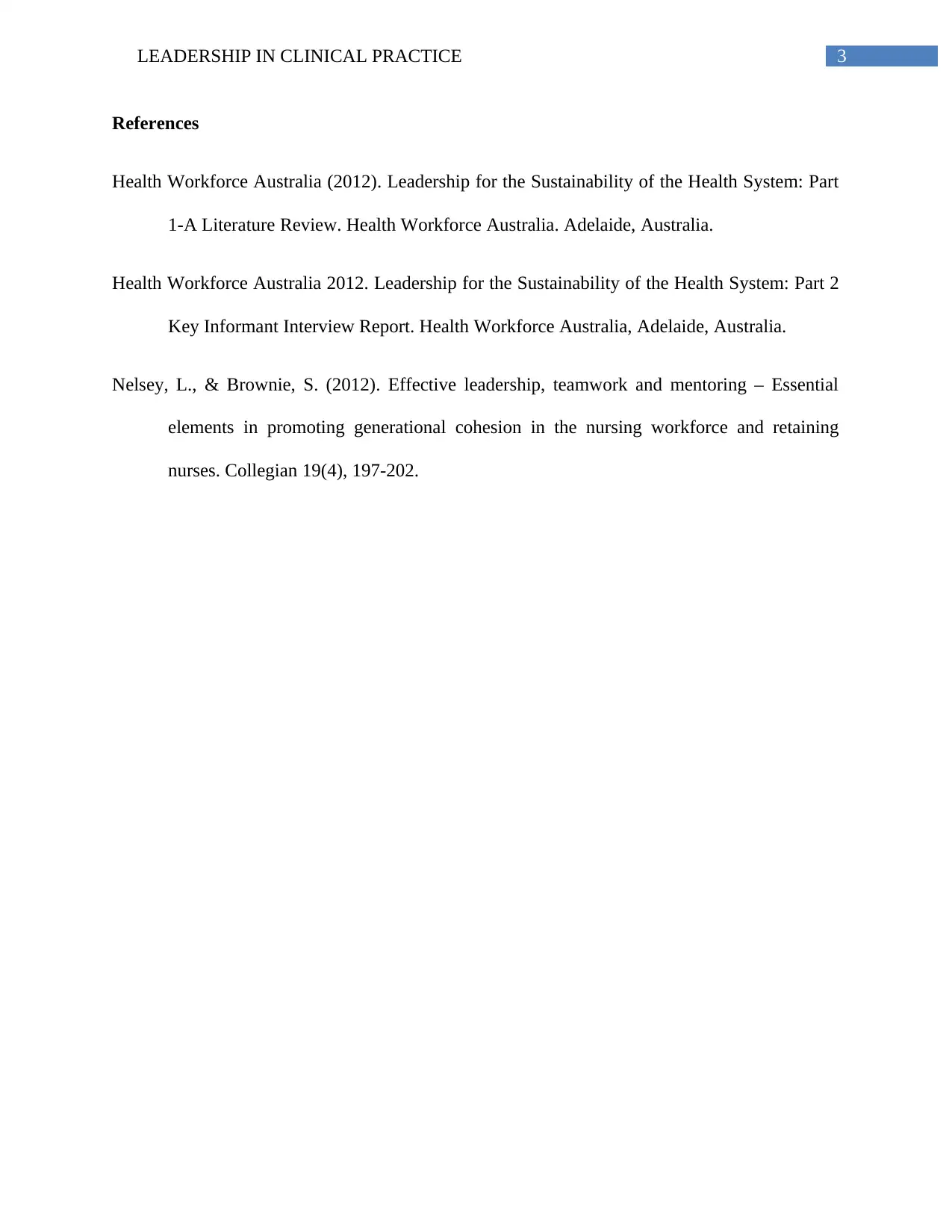Analyzing Effective Leadership Strategies in Clinical Practice
VerifiedAdded on 2023/06/13
|4
|623
|58
Essay
AI Summary
This essay discusses the critical role of leadership in clinical practice, highlighting its impact on various aspects of healthcare, including staff satisfaction, teamwork, and patient care quality. It emphasizes that effective leadership is not just about assigning clinicians to management roles but also about involving them in decision-making processes and providing opportunities to enhance their skills and influence. The essay further explores how leadership development can be integrated into quality improvement initiatives to promote innovation and change within healthcare systems. Drawing from research and surveys, the essay concludes that strong leadership is essential for improving nursing retention rates, reducing staff burnout, and creating a positive work environment, ultimately leading to better clinical outcomes and a more sustainable healthcare system. Desklib provides students with access to similar essays and a wealth of study resources to support their academic endeavors.
1 out of 4











![[object Object]](/_next/static/media/star-bottom.7253800d.svg)